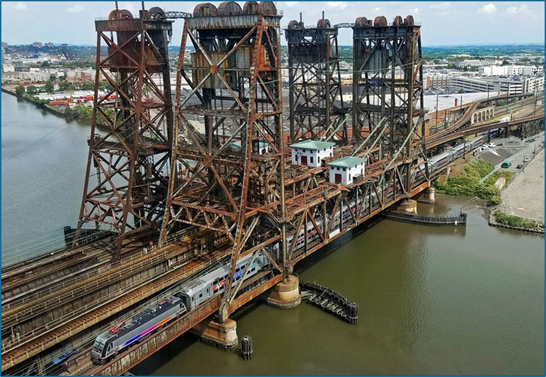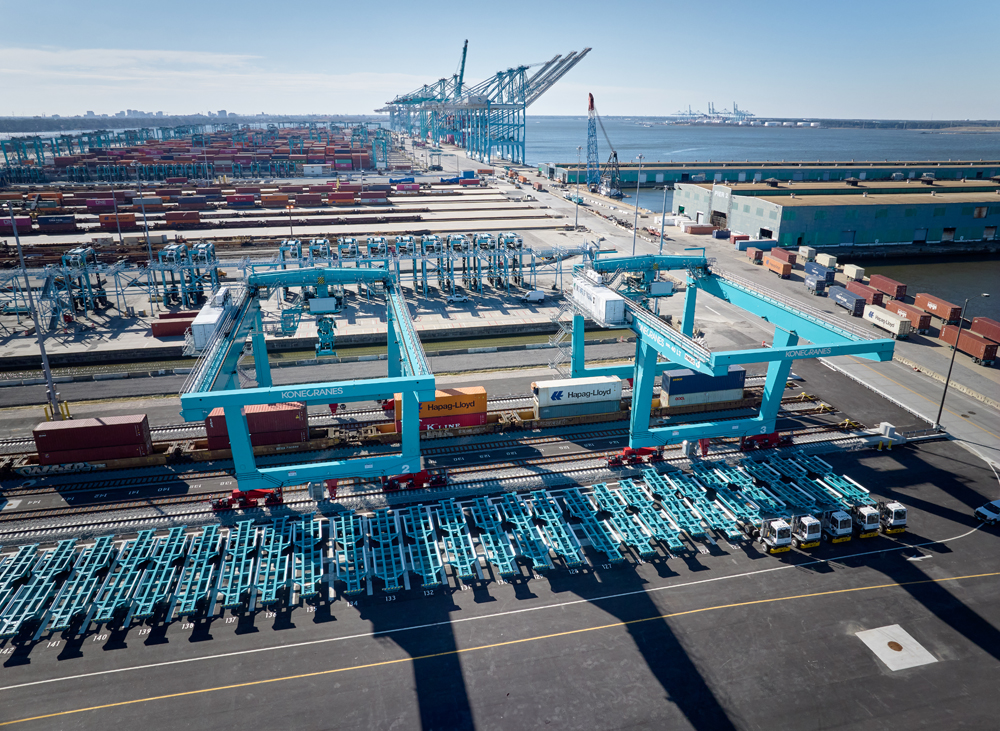The purchase of these shortline railroads grows R.J. Corman’s business by 12,000 carloads annually and adds more than 140 miles to the company’s portfolio. It is also Corman’s first business dealings with a commuter rail operation.
“There is significant economic activity in the Nashville area and in the surrounding counties that the NERR and NWRR operate and we look forward to working with the rail authorities and local economical development agencies in continuing to capitalize on those growth opportunities,” R.J. Corman representative Todd Bivins tells Trains.
Bivins says maintaining the high level of rail service that has been provided in the past will be critical in continuing growth with the existing customer base on the line while also attracting new opportunities.
“Having multiple short lines in a general geographic area enhances opportunities for short line to short line business,” Bivins says.
As for the geographical scope of the Nashville area railroads that are part of the purchase include the 130-mile Nashville & Eastern Railroad from Nashville to Monterey, Tenn., using tracks leased from the Nashville & Eastern Railroad Authority. The deal also includes the 18-mile Nashville & Western Railroad using leased tracks from the Cheatham County Rail Authority from Nashville to Ashland City, Tenn.
Both railroads use tracks that are part of the original Tennessee Central Railway.
Combined, the railroads haul a mix of chemicals, aggregates, waste, paper, energy products, metals, and building materials. The shortlines interchange with CSX Transportation’s former Louisville & Nashville main line in Nashville.
In addition to its freight business, Trains asked R.J. Corman about its plans for operating the Music City Star.
“The breadth and history of our successful freight operations will nicely complement the safe and reliable operations that have been provided by [Transit Solutions Group] for the Music City Star,” Bivins says.
Bivins says the company does not foresee any changes to commuter rail operations at this time.
“The Music City Star is a critical piece to the transportation network of the Nashville area and it fits nicely with the freight operations of the NERR. We believe both ridership on the Music City Star and carloads on the NERR can continue to grow together creating significant economic value to a booming area,” Bivins says.
“We see the joint use of the available infrastructure and right of way as an economical way to add value to both freight and the Music City Star,” he adds.
The Music City Star has been serving the greater Nashville area since its inception in 2006. It provides daily passenger service between Nashville and Lebanon, Tenn., on Nashville & Eastern rails. The commuter railroad operates former Amtrak EMD F40PH locomotives and ex-Metra bi-level commuter cars. The operation handles around 300,000 passengers annually.
Financial terms of the agreement were not disclosed, but R.J. Corman did say it expects the deal to be finalized by January 2019.















Christophe Parker, what could be done is to reconstruct the very eastern end of the old TC between Monterey and Crab Orchard to give a contiguous line between Nashville and the NS at Rockwood, TN. I can’t see where the demand would be there to justify the investment.
What possibilities are there to extend the Nashville and Eastern east to Norfolk Southern to give NS access to Nashville? Nashville to the northeast is a significant passenger market; one could imagine intermodal doing well in that corridor. But there is track to reconstruct. Is there a paper barrier?
It is certainly difficult to develop much new business east of Carthage Junction because of the topography along the line. That is very hilly and rugged terrain not conducive to development in general. Cookeville is certainly not a boon for industry…yet. As Nashville continues to grow, it is likely that industries will be pushed out by gentrification and higher costs of doing business/NIMBYism so there could be opportunities in the coming years. Places like Cookeville eager to attract larger industries and good paying jobs will be the benefactors when Nashville decides they don’t need much beyond condos, coffee shops, and craft breweries.
BTW, that sand train is as good of business as a shortline can ask for– online haul only, so no revenue sharing. They take all that money home to the jelly jar.
The old Tennessee Central was an interesting little line…never much of a money maker, but did sport Alco Century locomotive in the closing years late 60’s. Google search Tennessee Central Railroad, and read all about this little line…had an interesting history for sure.
Do not forget the Tennessee Central museum in Nashville and its excursions. How will this purchase affect operations there?
RJCorman Tennessee Central Lines? Maybe this will help spark the interest into reality of rebuilding the abandoned parts of the TC.
Will RJ Corman continue the support previously given by NERR on the rehabilitation and operation of steam locomotive 567 in Nashville?
The true test will be if RJ Corman can reverse declining traffic on the eastern end of the line. In 1986, when Seaboard System exited, there were around 20 active shippers east of Carthage Junction. Today, there are 4 shippers with one being new unit sand trains from Monterey. Cookeville, the largest city on this segment, has not attracted an industry which installed a spur since 1976.